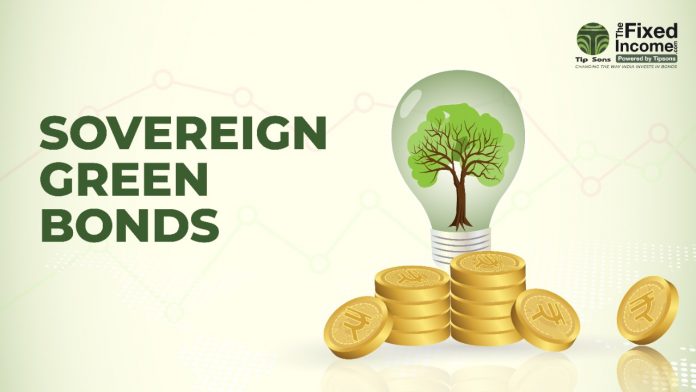Sovereign Green Bonds for NRIs: A Comprehensive Guide

What are Sovereign Green Bonds (SGrBs)?
Sovereign Green Bonds (SGrBs), introduced in the 2022-23 Union Budget of India, aim to raise funds for green infrastructure projects, helping to reduce the carbon intensity of the Indian economy. These bonds are part of the government’s commitment to sustainable development. Non-Resident Indians (NRIs) can now invest in these bonds through the International Financial Services Centre (IFSC) in Gandhinagar, Gujarat, offering an ethical investment option.
Who Can Invest in SGrBs?
SGrBs are available to a range of investors, including:
- Non-Resident Indians (NRIs)
- Retail investors
- Foreign Portfolio Investors (FPIs)
- Overseas Citizens of India (OCIs)
- IFSC units that do not have an Indian presence
This wide pool of eligible investors makes SGrBs a versatile investment opportunity for both domestic and international participants.
How Can NRIs Invest in SGrBs?
NRIs interested in investing in Sovereign Green Bonds can do so via:
- The RBI Retail Direct platform, which provides easy access to government securities.
- Authorized brokerage firms that facilitate bond purchases.
The process is straightforward and accessible, making it easy for NRIs to invest in sustainable projects in India.
Taxation on Gains from SGrBs
Effective from July 23, 2024, the taxation of gains from SGrBs is as follows:
- Short-term capital gains (STCG): Taxed at 20%.
- Long-term capital gains (LTCG): Taxed at 12.5%.
It is important to note that indexation benefits, which previously helped reduce tax liability on long-term investments, no longer apply. This is a critical consideration for NRIs looking to optimize their returns.
Interest Rates on SGrBs
The interest rates on Sovereign Green Bonds range between 7.1% and 7.4%, offering a competitive edge over traditional Non-Resident Ordinary (NRO) deposits. This makes SGrBs an attractive option for investors seeking higher returns while supporting environmentally sustainable projects.
Advantages of Investing in SGrBs
- Ethical Investment: By investing in SGrBs, investors contribute to eco-friendly projects, aligning with global sustainability goals.
- Higher Interest Rates: The interest rates on SGrBs are more attractive than those offered on traditional NRO deposits, providing better returns.
- Sovereign Security: These bonds are backed by the Indian government, minimizing credit risk for investors.
Disadvantages of SGrBs
- No Specific Tax Benefits: Unlike some other investment options, SGrBs do not offer additional tax benefits to NRIs.
- Potential Liquidity Issues: If an investor needs to sell the bond before maturity, they may face liquidity constraints.
- Greenwashing Risk: There is a potential risk of “greenwashing,” where the environmental claims of a project may not fully meet expectations or deliver the intended green impact.
Taxation for IFSC Transactions
At present, gains from SGrBs sold through the IFSC are taxable. However, there may be potential capital gains exemptions in the future, pending regulatory updates. This is something for investors to watch closely as it could affect the overall tax liability on their investments.
Conclusion
Sovereign Green Bonds provide NRIs with a unique opportunity to invest in India’s sustainable future while enjoying competitive interest rates and sovereign-backed security. However, investors should be mindful of the taxation policies and potential liquidity challenges when making their investment decisions.



